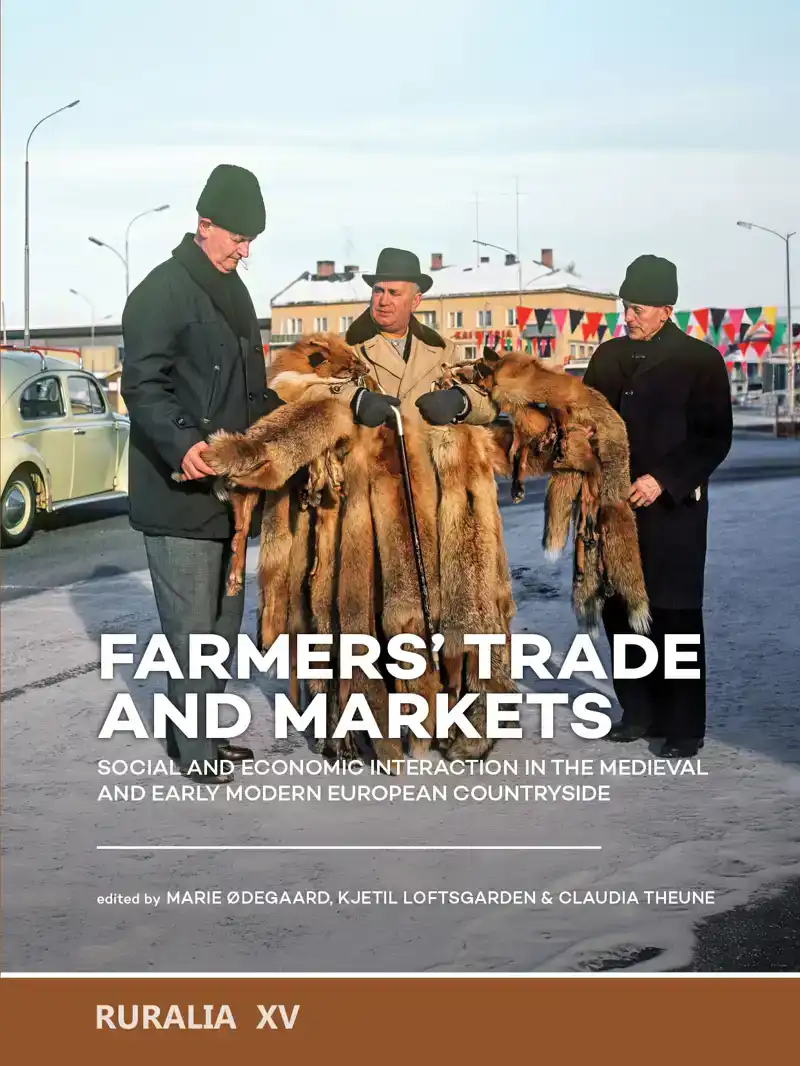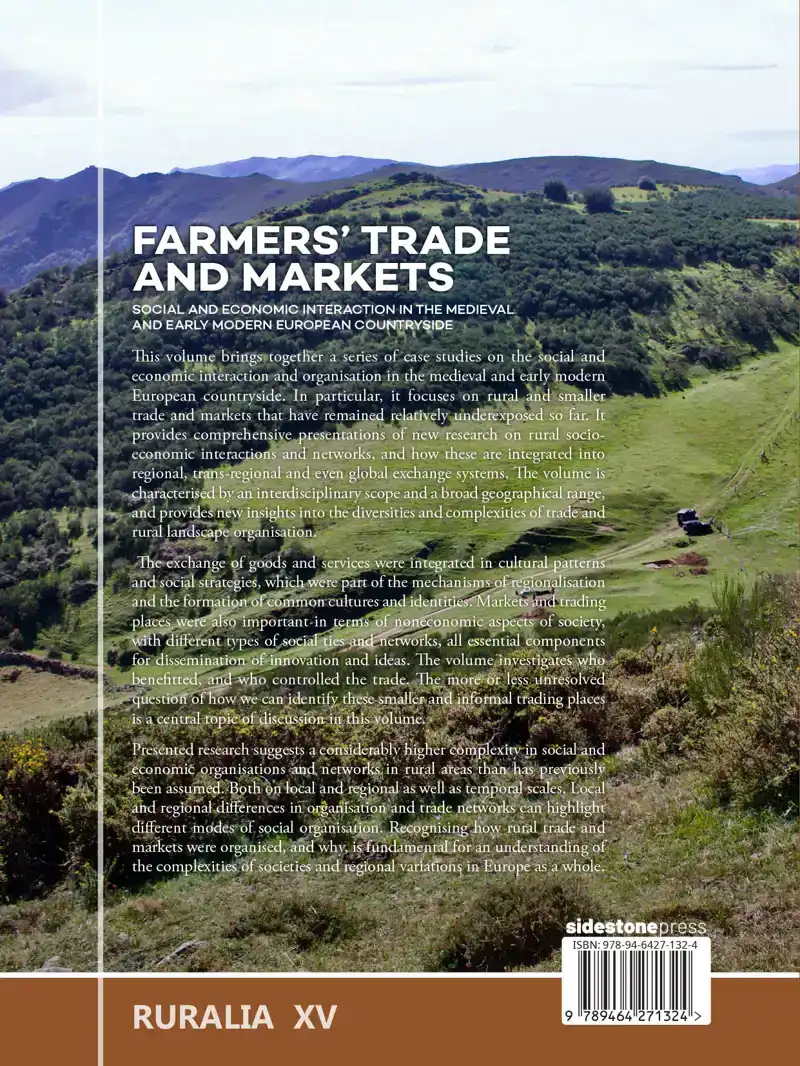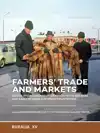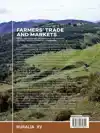- Engels
- Pockets
- geschiedenis alg.
- archeologie
- FARMERS' TRADE AND MARKETS
FARMERS' TRADE AND MARKETS
60,00incl BTW
Nog niet verschenen. Wordt verwacht op: 08-09-2025
Vertrouwd sinds 1927
Persoonlijke aandacht en advies
Vanaf 17,50 gratis verzenden NL & BE
Meer dan 150.000 artikelen online
Omschrijving FARMERS' TRADE AND MARKETS
This volume brings together a series of case studies on the social and economic interaction and organisation in the medieval and early modern European countryside. In particular, it focuses on rural and smaller trade and markets that have remained relatively underexposed so far. It provides comprehensive presentations of new research on rural socio-economic interactions and networks, and how these are integrated into regional, trans-regional and even global exchange systems. The volume is characterised by an interdisciplinary scope and a broad geographical range, and provides new insights into the diversities and complexities of trade and rural landscape organisation.
The exchange of goods and services were integrated in culturalpatterns and social strategies, which were part of the mechanisms of regionalisation and the formation of common cultures and identities. Markets and trading places were also important in terms of noneconomic aspects of society, with different typesof social ties and networks, all essential components for dissemination of innovation and ideas. The volume investigates who benefitted, and who controlled the trade. The more or less unresolved question of how we can identify these smaller and informal trading places is a central topic of discussion in this volume.
Presented research suggests a considerably higher complexity in social and economic organisations and networks in rural areas than has previously been assumed. Both on local and regional as well as temporal scales. Local and regional differences in organisation and trade networks can highlight different modes of social organisation. Recognising how rural trade and markets were organised, and why, is fundamental for an understanding of the complexities of societies and regional variations in Europe as a whole.
The exchange of goods and services were integrated in culturalpatterns and social strategies, which were part of the mechanisms of regionalisation and the formation of common cultures and identities. Markets and trading places were also important in terms of noneconomic aspects of society, with different typesof social ties and networks, all essential components for dissemination of innovation and ideas. The volume investigates who benefitted, and who controlled the trade. The more or less unresolved question of how we can identify these smaller and informal trading places is a central topic of discussion in this volume.
Presented research suggests a considerably higher complexity in social and economic organisations and networks in rural areas than has previously been assumed. Both on local and regional as well as temporal scales. Local and regional differences in organisation and trade networks can highlight different modes of social organisation. Recognising how rural trade and markets were organised, and why, is fundamental for an understanding of the complexities of societies and regional variations in Europe as a whole.
Reviews
0.0/5.0
Gemiddelde uit 0 reviews
Meest behulpzame reviews
Nog geen reviews geschreven




